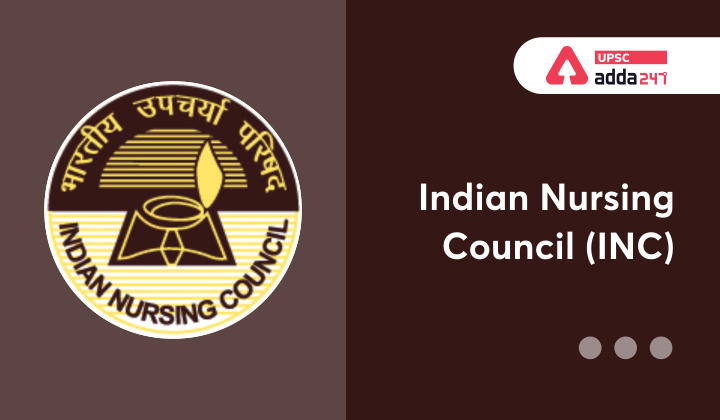Table of Contents
Indian Nursing Council (INC)- Relevance for UPSC Prelims
- GS Paper 2: Indian Constitution- Statutory, regulatory, and various quasi-judicial bodies.
Indian Nursing Council (INC)- Context
- The recent notification of the Indian Nursing Council’s (INC) restricted the 5% reservation for persons with disabilities (PwD) in B.Sc. Nursing courses are only for those with lower limb disability, and that too for the 40-50% disabled.
- The Indian Nursing Council’s (INC) notification has come under criticism from a pan-India group of health professionals with disabilities.
- The group demanded the following from the Union Health Ministry and the Department of Empowerment of Persons with Disabilities –
- Repeal of the allegedly discriminatory clause.
- Nurses with disabilities and disability rights activists are involved in the framing of new guidelines.
Indian Nursing Council (INC)- Key Points
- About Indian Nursing Council’s (INC): It is an Autonomous Body under the Government of India, Ministry of Health & Family Welfare.
- The Indian Nursing Council (INC) was constituted by the Central Government under the provisions of the Indian Nursing Council Act, 1947 of parliament.
- Mandate of Indian Nursing Council (INC): To establish a uniform standard of training for nurses, midwives, and health visitors.
- Regulation: The Indian Nursing Council regulates nursing education through prescription, inspection, examination, and certification.
- 91% of the nursing education institutions are private and weakly regulated. The quality of training of nurses is diminished by uneven and weak regulation.
Nursing Sector in India
- Insufficient Strength: India’s nursing workforce is about two-thirds of its health workforce.
- There are 7 nurses per 1,000 population is 43% less than the World Health Organization norm (India needs 2.4 million nurses to meet the norm).
- Structure Challenges of the Nursing Sector in India lead to poor quality of training, inequitable distribution, and non-standardized practices.
- Gaps in Nursing Education:
- Vacancy in faculty positions: There are around 86% and 80% vacancies in nursing colleges and schools, respectively.
- Uneven distribution of Nursing institutions: Around 62% of nursing institutions are situated in southern India.
National Statistical Office (NSO)
Recent Developments
- The National Nursing and Midwifery Commission Bill has been prepared by the government to replace the Indian Nursing Council with a new body called National Nursing and Midwifery Commission.
- National Nursing and Midwifery Commission: This body would have representatives of the Centre and the states. Its key functions would be-
- To frame policies and regulate standards for the governance of nursing and midwifery education and institutions.
- To provide standards for nursing and midwifery faculty and clinical facility in teaching institutions.
- To frame policies and codes to ensure observance of professional ethics in the nursing and midwifery profession.
- It will also assess and rate different institutions offering courses.




 TSPSC Group 1 Question Paper 2024, Downl...
TSPSC Group 1 Question Paper 2024, Downl...
 TSPSC Group 1 Answer key 2024 Out, Downl...
TSPSC Group 1 Answer key 2024 Out, Downl...
 Cabinet Ministers of India 2024, New Cab...
Cabinet Ministers of India 2024, New Cab...







